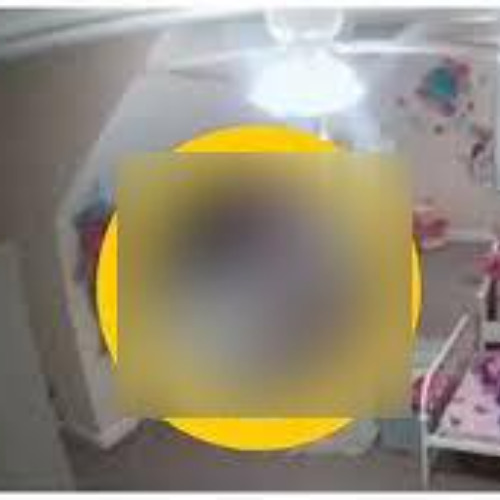Unveiling The Truth: Buscar Kid And Mom CCTV Story
In recent years, the term "buscar kid and mom CCTV" has captured significant attention across global media platforms. This phrase relates to an increasing number of incidents involving children and their mothers caught on CCTV cameras. These scenarios often involve critical situations such as child abductions, safety concerns, or family emergencies. Understanding the context and implications of these events is crucial for safeguarding children and ensuring family security.
As society becomes more reliant on technology, surveillance systems have become an integral part of public safety infrastructure. CCTV cameras play a pivotal role in monitoring public spaces and protecting individuals, especially vulnerable groups like children. The "buscar kid and mom CCTV" narrative sheds light on how these systems are used to track and recover missing children, reinforcing the importance of surveillance technology in modern times.
This article aims to provide a comprehensive overview of the "buscar kid and mom CCTV" phenomenon, exploring its significance, challenges, and solutions. By analyzing real-life cases and expert opinions, we will delve into the role of CCTV in child safety and family security, ensuring readers are well-informed about this critical topic.
Read also:Mark Avalos Lauren Compton A Comprehensive Guide To Their Journey And Impact
Table of Contents
- Background of Buscar Kid and Mom CCTV
- Understanding CCTV Technology
- Real-Life Cases of Buscar Kid and Mom CCTV
- Challenges in Implementing CCTV for Child Safety
- Benefits of CCTV in Child and Family Security
- Legal Implications of CCTV Usage
- Privacy Concerns and Ethical Considerations
- Expert Opinions on CCTV and Child Safety
- Solutions to Enhance CCTV Effectiveness
- Future Trends in CCTV Technology
Background of Buscar Kid and Mom CCTV
Understanding the Term
The phrase "buscar kid and mom CCTV" originates from the Spanish word "buscar," meaning "to search" or "to find." It refers to instances where children and their mothers are located or identified through CCTV footage. These situations often arise in cases of missing persons, child abductions, or family emergencies. The growing reliance on CCTV technology highlights the importance of surveillance systems in modern-day safety measures.
Historical Context
CCTV cameras have been used for decades, primarily for security purposes in public spaces. However, their role in tracking missing children and their mothers has gained prominence in recent years. High-profile cases involving child safety have brought attention to the effectiveness of CCTV in resolving such incidents. This section explores the historical development of CCTV technology and its evolution into a critical tool for family security.
Understanding CCTV Technology
How CCTV Works
CCTV systems operate by capturing live video footage through cameras strategically placed in public and private spaces. The footage is then transmitted to a monitoring station, where it can be reviewed in real-time or stored for later analysis. Modern CCTV systems are equipped with advanced features such as facial recognition, motion detection, and night vision, enhancing their ability to track individuals in various environments.
Types of CCTV Cameras
There are several types of CCTV cameras, each designed for specific purposes:
- Dome cameras: Ideal for indoor and outdoor use, providing a discreet appearance.
- Bullet cameras: Known for their long-range capabilities, suitable for monitoring large areas.
- PTZ cameras: Featuring pan, tilt, and zoom functionalities, allowing operators to control camera movements remotely.
Real-Life Cases of Buscar Kid and Mom CCTV
Case Study 1: Successful Recovery of a Missing Child
In 2021, a child went missing in a busy urban area. Thanks to the deployment of CCTV cameras, authorities were able to track the child's movements and locate them safely within hours. This case exemplifies the critical role of CCTV in resolving missing person cases and ensuring child safety.
Case Study 2: Preventing Child Abduction
A mother's quick thinking and the presence of CCTV cameras helped prevent a potential child abduction in a suburban neighborhood. The footage captured the suspect's actions, leading to their swift apprehension and ensuring the safety of the child and the community.
Read also:What Happened To Christopher Scarver The Untold Story Behind The Infamous Inmate
Challenges in Implementing CCTV for Child Safety
Technical Limitations
Despite their effectiveness, CCTV systems face several technical challenges. Poor lighting conditions, camera malfunctions, and limited coverage areas can hinder their ability to capture clear footage. Additionally, the sheer volume of data generated by CCTV systems requires robust storage and analysis capabilities, which can be costly to implement.
Public Perception
The use of CCTV cameras in public spaces often raises concerns about privacy and civil liberties. Some individuals view widespread surveillance as an infringement on personal freedoms, while others argue that it is necessary for maintaining public safety. Balancing these opposing viewpoints is a significant challenge for policymakers and law enforcement agencies.
Benefits of CCTV in Child and Family Security
Enhanced Safety Measures
CCTV cameras provide an additional layer of security for children and families by deterring criminal activities and facilitating swift responses to emergencies. Their presence in public spaces serves as a deterrent to potential offenders, reducing the likelihood of crimes occurring in monitored areas.
Quick Response to Emergencies
In cases of missing children or family emergencies, CCTV footage can provide valuable leads to law enforcement agencies. The ability to review footage in real-time allows authorities to respond quickly and effectively, increasing the chances of a successful resolution.
Legal Implications of CCTV Usage
Regulations and Compliance
The use of CCTV cameras is governed by various laws and regulations, which vary by country and region. These regulations aim to ensure that CCTV systems are used responsibly and ethically, protecting individuals' rights while maintaining public safety. Compliance with these regulations is essential for organizations and authorities deploying CCTV systems.
Data Protection and Privacy Laws
Data protection laws, such as the General Data Protection Regulation (GDPR) in Europe, impose strict requirements on the collection, storage, and use of personal data captured by CCTV cameras. Organizations must adhere to these laws to avoid legal penalties and ensure the privacy of individuals monitored by CCTV systems.
Privacy Concerns and Ethical Considerations
Respecting Individual Privacy
While CCTV cameras enhance public safety, they also raise ethical concerns about individual privacy. Striking a balance between security and privacy is crucial to maintaining public trust in surveillance systems. Implementing transparent policies and ensuring accountability can help address these concerns.
Community Engagement
Involving the community in discussions about CCTV usage can foster a sense of ownership and responsibility. Educating the public about the benefits and limitations of CCTV systems can alleviate fears and promote understanding of their role in maintaining public safety.
Expert Opinions on CCTV and Child Safety
Law Enforcement Perspectives
Law enforcement agencies worldwide recognize the value of CCTV in preventing and solving crimes. Experts in the field emphasize the importance of integrating CCTV systems with other security measures to create a comprehensive safety framework for children and families.
Academic Research
Studies conducted by academic institutions highlight the effectiveness of CCTV in reducing crime rates and improving public safety. Researchers advocate for continued investment in advanced surveillance technologies to enhance their capabilities and address existing limitations.
Solutions to Enhance CCTV Effectiveness
Technological Advancements
Investing in cutting-edge technologies such as artificial intelligence and machine learning can significantly improve the effectiveness of CCTV systems. These technologies enable automated analysis of footage, reducing the workload on human operators and increasing the accuracy of results.
Public-Private Partnerships
Collaboration between public and private entities can facilitate the deployment of CCTV systems in underserved areas, ensuring comprehensive coverage and enhancing overall safety. Public-private partnerships can also drive innovation and promote the development of new technologies to address existing challenges.
Future Trends in CCTV Technology
Emerging Technologies
The future of CCTV technology lies in the integration of emerging technologies such as drones, wearable devices, and biometric identification systems. These innovations have the potential to revolutionize the way CCTV systems are used, providing enhanced capabilities for monitoring and securing public spaces.
Sustainability and Environmental Impact
As the world becomes more environmentally conscious, the development of energy-efficient CCTV systems is gaining attention. Manufacturers are exploring sustainable solutions, such as solar-powered cameras and eco-friendly materials, to reduce the environmental impact of surveillance technology.
Conclusion
The "buscar kid and mom CCTV" phenomenon highlights the critical role of surveillance systems in ensuring child safety and family security. By understanding the background, challenges, and benefits of CCTV technology, we can better appreciate its significance in modern-day safety measures. As technology continues to evolve, it is essential to address privacy concerns and ethical considerations to maintain public trust and ensure responsible usage of CCTV systems.
We encourage readers to share their thoughts and experiences in the comments section below. Additionally, feel free to explore other articles on our website for more insights into technology, safety, and security. Together, we can create a safer world for children and families.
Article Recommendations


